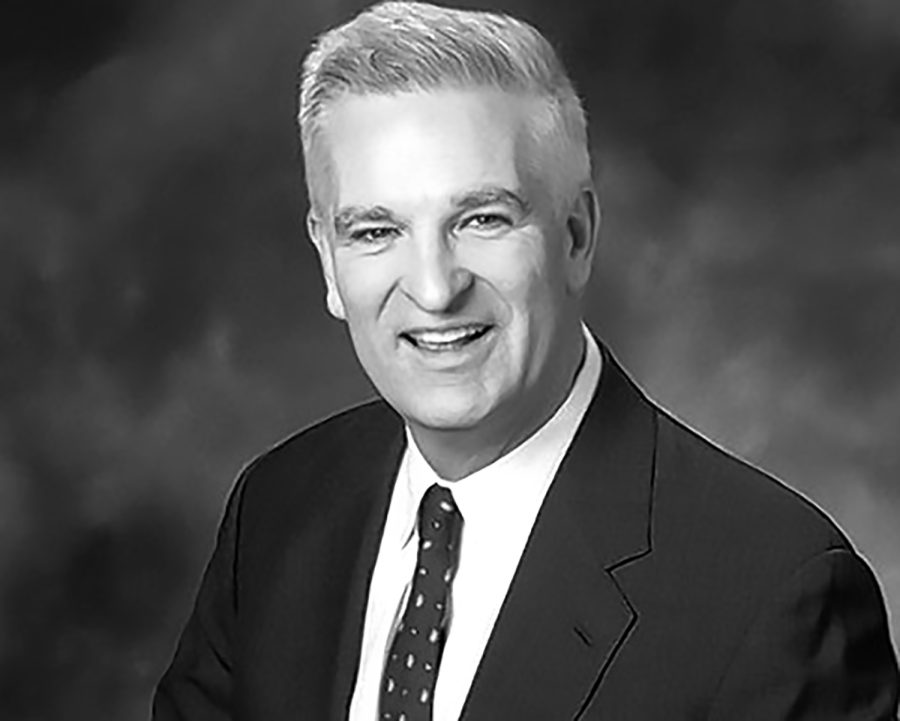Meet Mark Curran, the Republican running for Illinois Supreme Court
Mark Curran talks Roe v. Wade, being sheriff, and influences of religion on politics ahead of midterm elections
Curran for Court
Mark Curran, the longest-serving sheriff of Lake County, is a Republican running for a spot on the Illinois Supreme Court during the 2022 midterm elections.
November 2, 2022
Mark Curran is a Republican running for Illinois Supreme Court against Democrat Elizabeth Rochford. he talks of his time as a sheriff, his qualifications, and faith ahead of the Nov. 8 Election.
Read our interview with Rochford here.
What made you want to start this political journey of running for Illinois Supreme Court?
I’ve always been called to public service. I spent a long time as a prosecutor at the county, state, and federal level, and subsequent to that I was the longest serving sheriff in Lake County. So I was a public defender, I was a coroner, and I’ve done all of these different things in the criminal justice system.
I’ve always been called to public service on some level and I feel like it’s a calling. We’re trying to align ourselves with what we believe our purpose is in life. For me it was to get into this race.
Like you said, you were a sheriff. Has this affected you or your ways as a politician at all?
I was a Republican candidate for the U.S. Senate two years ago, so I’ve been in politics for a long time. I’ve run for office for a long time. Each race is different, there’s different challenges, there’s different issues that are important for the voters, there’s differences in the way the races are covered and there’s differences in terms of what people want to talk about right now and down the line. So they’re all different but this is really an unusual race in a lot of ways too.
Can you tell me about your experience and qualifications for the Illinois Supreme Court?
I’m running for Supreme Court, so it’s not a lower court. Lower court judges rule on things like an objection or whether or not it was a proper one — they don’t often rule on the bigger issues, and that’s what supreme court justices do. So you’re basically ruling on the constitutionality of the Illinois Constitution and the Illinois Statute, and also, to some extent, the U.S. Constitution.
I was a long time constitutional law professor; I’ve done that for a very very long time. As a sheriff I was known as a constitutional sheriff, meaning that we didn’t exceed the vows of what the sheriff is essentially expected to do — our executive role in terms of enforcing laws that are consistent with both the Illinois and U.S. Constitutions. I spent a lot of years as a prosecutor. I bring a lot to the table in terms of the ability to decide these very important issues.
The Illinois State Bar Association attached a “not recommended” label to your candidacy. What are your thoughts on this?
I’m not really that concerned about it. I wasn’t a judge as some where thinking, it was probably essentially that. There’s so many justices on both the Illinois Supreme Court and U.S. Supreme Court that historically were never lower court judges. Elena Kagan who is on the U.S. Supreme Court right now was never a judge before she went to the U.S. Supreme Court. The first judge John Marshall never was, you can go on and on down the line. It’s not a requirement [to be recommended by the Bar Association], but probably to some it was an issue.
On your website it says you’re a man of faith. Does this affect your views on cases?
Does it say that on my website? That’s interesting. No that doesn’t. So basically, our Declaration of Independence references that our rights come from natural law, nature’s law and nature’s God. It references that three times in the Declaration of Independence. Really that’s the backdrop to the way that I see things. It is natural law and that is what drives me. I mean, I’m a Catholic, but that’s not really the lens I see the law through.
Do you see the overturning of Roe V. Wade as a threat to human rights or women’s rights?
No, I mean, what the U.S. Supreme Court did was set it back to the states. The states are free to pass legislation with regards to that, so it’s a states rights issue. I think even most of the Democrat leaning judges thought Roe v. Wade was wrongly decided, Ruth Bader Ginsburg felt that way.
The Tenth Amendment, the reserve clause of the U.S. Constitution specifically, provides that those powers not enumerated in the U.S. Constitution are reserved for the states. It specifically goes on to talk about police powers, health, education and welfare. So clearly that’s a states rights issue. Illinois has the most liberal abortion laws in the country, and that’s because the legislatures decided that.
What is something you wish voters would know before the upcoming election?
It’s a choice between two candidates in my race, and I know my opponent has taken well over half a million dollars from trial owners, similar money from the union and half a million dollars from JB Pritzker, and all this money down the line.
People don’t write those checks because they want good government, they expect a return on their investment. She’s been intertwined with the Cook County Democratic party, and that’s who she gets the money from. They vetted her and they feel confident about that.
I bring an independent basis to this office, so the reality is that even if Darren Bailey would win, and he’s down by double digits, the Illinois General Assembly is in a super minority status. That means both in the House and in the Senate, they have enough votes to override a veto of whoever’s the governor. If it was Bailey, he couldn’t really do anything to prevent the General Assembly from doing anything they want. So we’re a one party state, and a one party state has driven us into the ground, and a one party state has essentially bankrupt us, and a one party state has usurped our rights.
All of this comes out of Springfield and is essentially driven towards the city of Chicago. In McHenry County, you pay for Chicago schools. You pay for essentially everything and you get very little in return other than ridiculously high taxes. That’s why everybody is leaving, that’s why people a couple years older than you don’t go to college in Illinois, and once they’re done with college they leave the state.
So for people my age, children are all leaving the state, there’s nothing here for people to stay anymore. So if we win the Supreme Court, that’s one branch of government that supports a check of balance on the other two, and I think for a lot of people, the courts can’t do a lot. But they can prevent JB Pritzker when he writes a $500,000 dollar check to my opponent. It’s to make sure everything he wants gets done. For a lot of people that’s not what they want. So I think that the balance we bring to the table is exciting for a lot of people and they’re hopeful.











